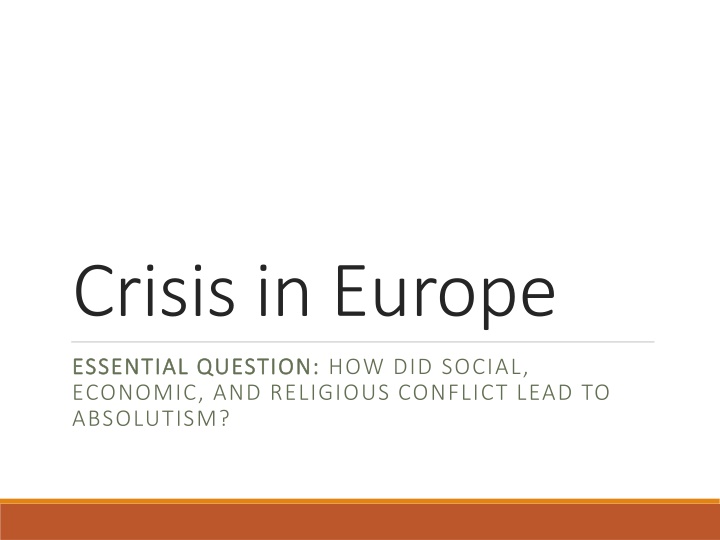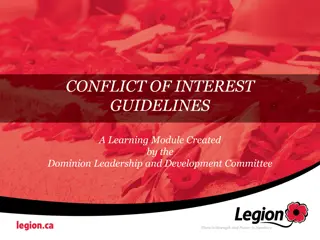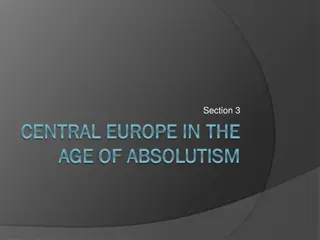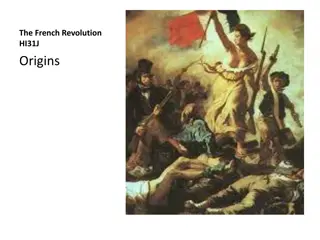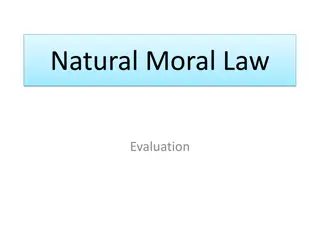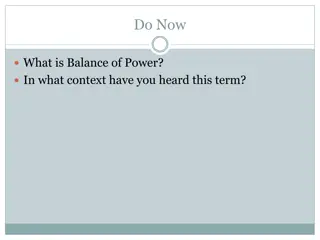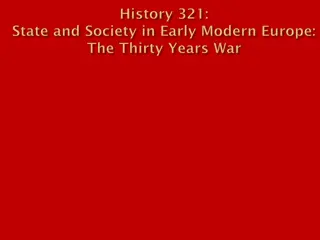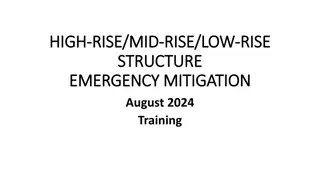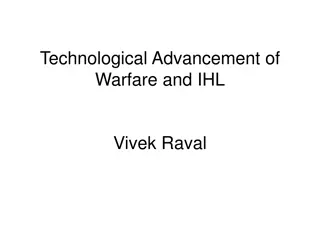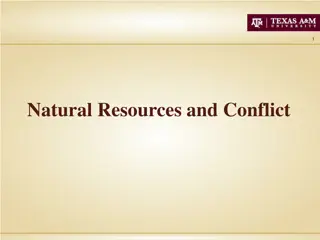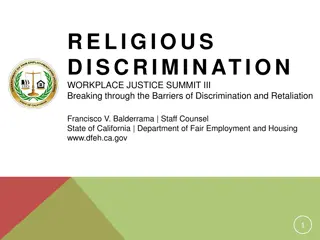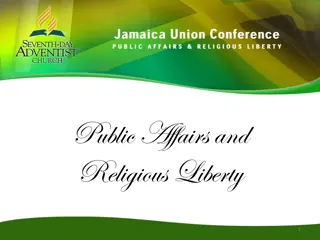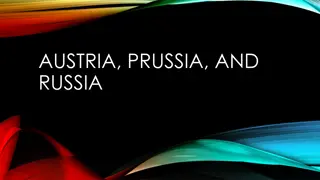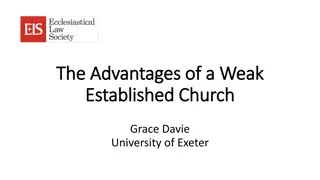Religious and Social Conflicts Fueling the Rise of Absolutism in Europe
Social, economic, and religious conflicts in Europe played a significant role in the emergence of absolutism where monarchs wielded supreme power without sharing it with legislative bodies. Events like Spain's religious conflicts, Protestantism in England, the Spanish Armada, religious conflict in the Netherlands, and the French Wars of Religion demonstrate how these tensions led to the consolidation of absolute power in the hands of monarchs who claimed divine right to rule.
Download Presentation

Please find below an Image/Link to download the presentation.
The content on the website is provided AS IS for your information and personal use only. It may not be sold, licensed, or shared on other websites without obtaining consent from the author.If you encounter any issues during the download, it is possible that the publisher has removed the file from their server.
You are allowed to download the files provided on this website for personal or commercial use, subject to the condition that they are used lawfully. All files are the property of their respective owners.
The content on the website is provided AS IS for your information and personal use only. It may not be sold, licensed, or shared on other websites without obtaining consent from the author.
E N D
Presentation Transcript
Crisis in Europe ESSENTIAL QUESTION: ESSENTIAL QUESTION: HOW DID SOCIAL, ECONOMIC, AND RELIGIOUS CONFLICT LEAD TO ABSOLUTISM?
What is Absolutism Absolutism? A term for a monarch holding total power over a nation An absolute monarch does not share any power with a legislature like Parliament or Congress They also claim divine right or that their power comes from God who chose them to rule over the nation
Spains Religious Conflicts Militant Catholicism King Philip II The Most Catholic King 1500: Spain expelled all Jews and Muslims Claimed Spain as Catholic Kingdom and declared allegiance to the Pope Nation chosen by God to save Catholic faith
Protestantism in England 1558: Elizabeth Tudor becomes Queen Leader of a Protestant movement once again in England Defeated her half sister Mary Queen of Scots who was a Catholic Established new Act of Supremacy Only supreme governor of church and state Politically tried to please everyone Always sided with the weaker country in the battle between France and Spain
The Spanish Armada Spanish Armada 1588: Spanish Armada sent to invade England Wanted to bring the country back to Catholicism Completely unprepared and defeated Led to the downfall of Spanish control Country eventually went bankrupt https://vimeo.com/83530381
Religious Conflict in the Netherlands Calvinists and others resented the control of Philip II 1566-1609: War breaks out William the Silent led the Protestants (Calvinists) Eventual truce was reached for 12 year period Netherlands created own identity and established Republic with William as king
French Wars of Religion (1562- 1598) The Huguenots French protestants 7% of population but 40-50% of nobility Henry IV (Huguenot leader) becomes king Converts to Catholicism 1598: Edict of Nantes Made Catholicism official religion of France Huguenots will be allowed to religious freedom to worship and enjoyed political privileges
Crises in Europe Inflation: Rapid Increase in prices Brought about by demand for more land and food by the Merchant middle class Goods from the new world flooded the market making things like gold less valuable Examples. Spain- Depended primarily on silver from mines and the deposits have become depleted Italy- Decline from time of Renaissance trading due to Age of Exploration making other nations rich
Crises in Europe Witchcraft Trials Witchcraft created fear for centuries Inquisition made fear of it even stronger 100,000 brought to trial, usually single women Thirty Years War (Treat of Westphalia) Political and Territorial Calvinists wanted to defeat Catholics and carve up Holy Roman Empire to create their own kingdom Kings from across Europe met and agreed on territory drawing it out on a map
Summary Answer the essential question in your own words using specific examples from the lesson: Essential question: how did social, economic, and religious conflict in Europe lead to absolutism?
